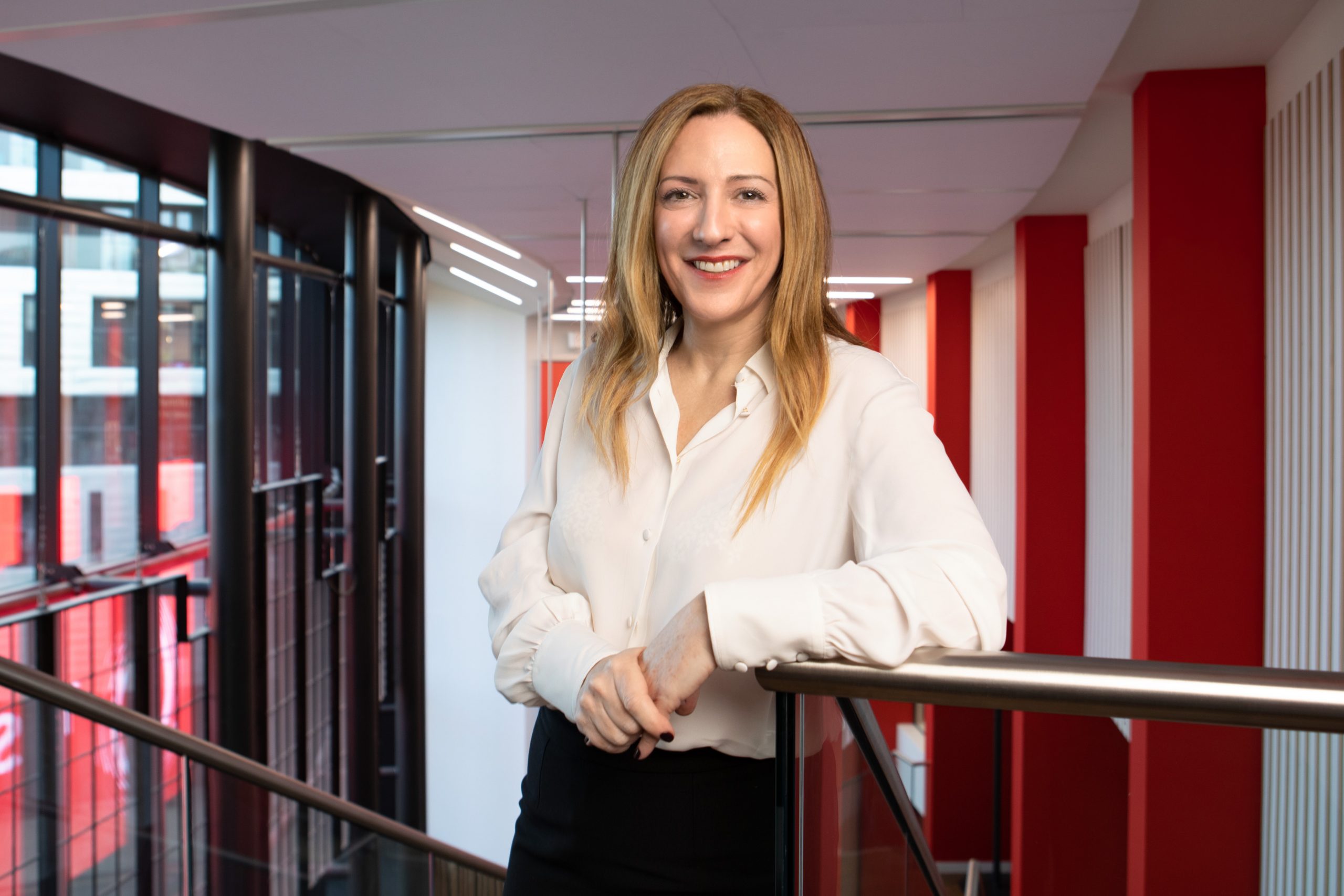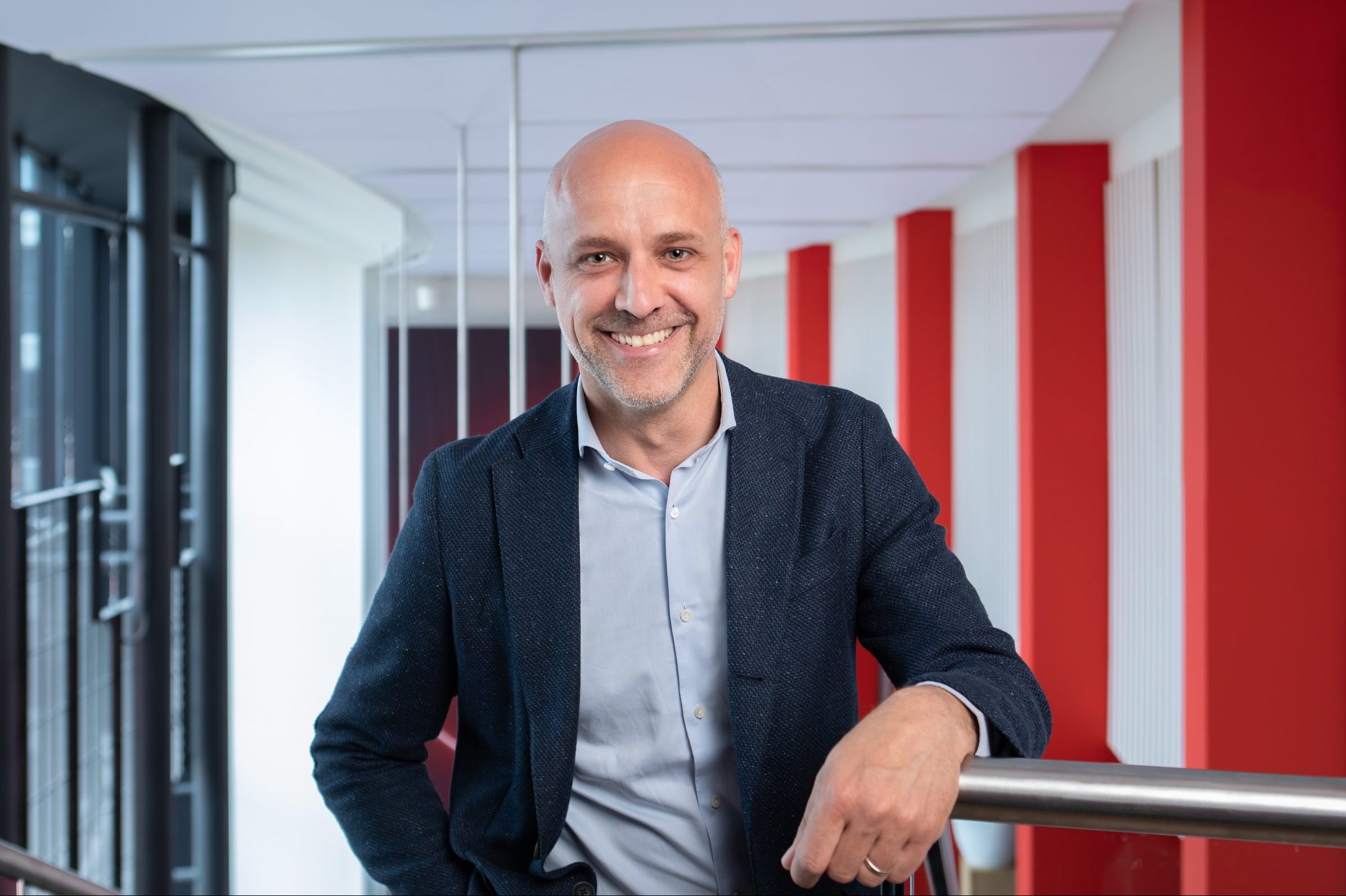
Helen Lamprell, General Counsel and External Affairs Director, Vodafone UK, discusses the ways in which Vodafone is supporting less privileged schoolchildren and families during the pandemic, and the pros and cons of zero rating educational websites.
New year, new lockdown and the challenges of home schooling. Even for parents with connectivity, this can be tough. And we know it is really hard for those families who can’t get online for whatever reason.
Education is so precious but we run the risk of creating a lost generation if we don’t address this issue urgently.
Which is why we are determined to keep helping.
Our schools.connected programme, which we launched in November after consultation with head teachers, has proven incredibly popular. We were bowled over by the level of demand. The initial offer of 250,000 free data SIMs for disadvantaged schoolchildren was snapped up in just four days. This is why we extended the offer by another 100,000 SIMs to bring the total to 350,000.
These have all now been ordered by more than 9,000 schools and further education colleges throughout the UK. We believe our quick and easy ordering process – it took less than five minutes to order the data SIMs online – has been a major factor in the programme’s success.
Now we’ll want to find out how many of those SIMs are activated and how people use them so we can build up a picture of the data demand. This will help us decide on the best way to support in future.
This initiative builds on our Connected Education pilots in Newbury and Stirling, whereby we provide teachers with a complete suite of tools to help with online teaching at home or in the classroom.
We’ve also announced that we are joining the Department of Education’s ‘Get Help with Technology’ programme to increase data allowances for disadvantaged children.
And we’re developing a number of education-related offers via our VeryMe loyalty programme. Keep an eye out for announcements over the next few weeks.
Digital divide
Ofcom estimates that 1.1 to 1.8 million children in the UK (9%) do not have home access to a laptop, desktop or tablet, and that about 900,000 children live in a household with only a mobile internet connection.
The pandemic has clearly exacerbated the digital divide in this country and poverty has increased, as several studies show.
This is why our Great British Tech Appeal is so important. It’s been wonderful to see how generously people have donated their unwanted smartphones and tablets so that they can be wiped, refurbished and distributed to homes that really need them.
I’m sure many of us will have received new devices for Christmas, so it’s the perfect time to consider sending your old gadgets to a new home where they will be truly appreciated.
So we’re doing our bit to help, and many other organisations, from supermarkets to charities, have been doing amazing work, too, but this is a huge issue and we can’t do it alone.
Zero rating and unlimited data
This week, there has been a big debate about zero rating educational websites, which means that accessing them doesn’t use any of your mobile data allowance.
This sounds simple enough to do in theory but there are a number of technical and legal challenges to this. For example, if an education resource site hosts some of its content on another platform, such as YouTube, as is often the case, we would have to zero rate the whole of YouTube. And if we zero rate the whole of YouTube that is not fair to other content providers. It will also be difficult to square with our legal obligations around net neutrality.
Our networks cost a lot of money to build and maintain – we and other telecommunications networks invest billions of pounds every year to ensure they work securely and effectively. Even the radio waves we use to transmit signal to your phone cost millions of pounds a year in fees to the government, and this cost has to be met somewhere.
If we zero rate sites we provide an advantage to one provider over another and the cost is eventually passed to other customers.
Doing our part
During a global health emergency we all need to do our part, which is why since the start of the COVID crisis in 2020 we have:
- provided unlimited data to NHS and care home workers;
- offered free data connectivity to 350,000 disadvantaged schoolchildren;
- offered free broadband to small businesses;
- created tech videos and free appointments with our tech experts to help those who cannot go into stores to access help;
- zero rated 25 websites, including NHS and domestic abuse charity sites;
- worked with Barnado’s, the British Red Cross and SafeLives to redistribute thousands of phones to those in need.
Our broadband tariffs are already unlimited and we provide unlimited tariffs at a range of prices, across Pay Monthly, SIM-only and Pay As You Go plans. We also have a heavily discounted tariff for anyone who is unemployed and looking for work: VOXI ‘For Now’.
These tariffs all mean that the blunt instrument of zero rating becomes irrelevant. It allows customers to choose to access whatever content they chose and it’s fairer to the people who are making the content.
This isn’t to say we won’t ever zero rate sites, including educational sites, especially in an emergency. But they have to be built in a way that allows them to be zero rated. You can read more about the industry’s position on this via Mobile UK here.
But these are short term measures for a crisis. It is not a sensible or sustainable long-term answer, and it certainly isn’t the panacea some people seem to suggest.
Digital poverty
As we eventually emerge from COVID, we will remain committed to ending digital poverty. We firmly believe that connectivity allows people of all ages to improve the quality of their lives, whether it is school-age children, adults wanting to retrain and upskill, or older people who want to stay in their own home and connect with friends and family.
#KeepConnecting


![Nicki-Lead_image[OPTIMISED]](https://www.vodafone.co.uk/newscentre/app/uploads/2023/10/Nicki-Lead_imageOPTIMISED.jpg)